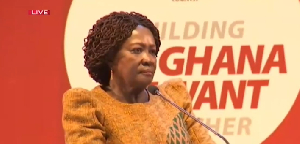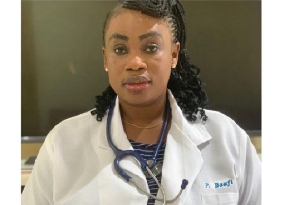Opinions of Saturday, 20 October 2012
Columnist: Amoah, Anthony Kwaku
The Contentious Free SHS Promise
By Anthony Kwaku Amoah
It is time to break silence on this matter of free education. I have had appeals from readers to give a bite to this litigious issue in the public domain. Education breaks the yoke of poverty, violence, ignorance and disease among society. Any policy geared towards improving education must therefore be supported.
On-going political campaigns are now focused mainly on education due to the crucial role it plays in the socio-economic life of a nation. The prayer, however, is that these promises will be fulfilled.
As the ruling NDC sings song of access, the NPP also propagates its teacher-first approach to free Senior High School (SHS) education. Listen to NPP’s Nana Addo Dankwa Akufo-Addo: “If good health is basic to our survival, good education is critical to our development. Education creates social mobility; we will redefine basic education to include free Senior High School education for every child. Basic education will be redefined to span from kindergarten to SHS; our educational transformation agenda includes a Teachers First Policy focused on raising the support and quality of our teachers.”
He adds, “By free SHS we mean free tuition, admission, textbook, library, science center, computer, examination, utilities, boarding and meals” accentuating, “Although the cost of free secondary school education will be high, at an additional 1% of Ghana’s total income, the alternative of a largely uneducated and unskilled workforce is a situation Ghana cannot afford.” The party says it will prudently use budgetary resources (including resources from oil exports) to fund the policy, allaying fears that citizens will not pay high taxes to run the policy.
Dr Papa Kwesi Nduom of the PPP, Dr Abu Sakara Foster of the CPP, Prophet Daniel Nkansah of the NVP and Madam Akua Donkor of the GFP are almost on same wavelength as the NPP.
Dr Nduom, for instance, says, “Our country is heading for a serious disaster if we do not offer them free, compulsory and quality education as a top national priority” adding, “This is a life or death issue for the future of Ghana.” Is it not true that our education system is in crisis? We know that of about 100 children that begin KG, only 71 will end up in primary school and 65 into junior high school while about 35 progress to senior high school with only 3 managing to reach the university. The idea of Teacher First is laudable. Currently, the GES has registered more than 240,000 teachers with over 10% of them untrained and still with a deficit of about 60,000.
As the NPP re-echoes its promise of making pre-tertiary education free, the ruling NDC describes it as a fraudulent one. Government communicators, on a daily basis, try to rubbish the policy making it unattractive to electorates. Education Minister Lee Ocran says our economy cannot support a package of this caliber and that Ghanaians should turn death ears to those advocating it. President John Mahama too is very pessimistic about it now indicating that his government may consider it after 2016.
For fear of political tagging with possible victimization and vilification, bodies like CHASS, GNAT, NAGRAT, TEWU, POTAG, UTAG and GES have all remained quiet over the issue, though; it is within their area of operations. An ex-Vice-Chancellor of the University of Ghana, Prof George Benneh recently said that our nation has the resources to execute the policy but the problem has to do with political commitment and determination.
Former Vice-Chancellor of the University of Education (Winneba), Prof Jophus Anamuah-Mensah also indicates that our education system has many challenges, including access and quality and that free education could be one way of widening access.
On the contrary, a group of lecturers calling itself “Ghana First” led by Dr Ebenezer Hayford of the University of Ghana last week condemned the policy saying it is not feasible and that Ghanaians should rather focus on expanding access.
It is not easy for a rural poor parent to pay GHC100 as a fee for a child in a secondary school. About a decade and half ago, I nearly dropped out of a community secondary school for non-payment of fees which were even less than C100, 000.00. A cousin, with BECE aggregate six, failed to make it to secondary school just because his mother could not raise C80, 000.00 as an admission fee. He is now doing galamsey for a living. As we speak, a large chunk of youth is patrolling the streets of communities without even secondary education, sad! Since students of the Northern, Upper East and West regions are still benefiting from same policy, it does not make any sense for us to condemn the move to replicate it in other parts of the country.
Pages 24 to 27 of the NPP 2012 manifesto did touch on expansion of educational infrastructure, including those in the rural parts of the country. It is therefore unfair to paint the picture as though the party abhors the need for access and quality also.
E-mail: amoatec27@yahoo.com/0246 476 171












